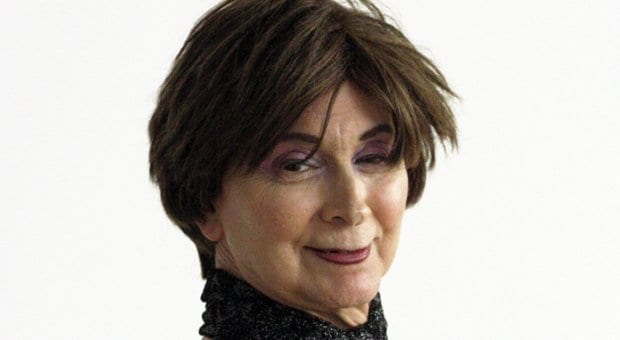When Shoshana Pellman arrived at St. Michael’s emergency with a deep cut in her finger, one of the intake staff addressed her as “Mr. Pellman” and insisted on completing the form with her male name. Pellman later filed a complaint, which led to a sensitivity training workshop for all emergency staff. According to a friend of Pellman’s who works at the hospital and was in attendance, the staff member at the centre of the incident was moved to stand up and apologize for what she’d done.
Ultimately, Pellman felt good about the way the issue was resolved, and even thanked the staff member for her apology. Still, these kinds of experiences make her wary of one day moving into a retirement home where she might be vulnerable to round-the-clock discrimination. Many LGBT seniors are similarly apprehensive of long-term care.
“Everyone shares the issues around loss of independence, not wanting to leave their homes, not wanting to live in that kind of environment,” said University of Toronto PhD candidate Jillian Watkins, but in addition to more universal concerns, she says LGBT seniors worry about being forced to hide their identities or dealing with hostile reactions from fellow staff and residents.
Watkins, who shared her research findings in August at an event hosted by the Alzheimer’s Society of Toronto, has encountered skepticism about the need for LGBT-focused senior care, given societal progress made in recent decades.
To better understand the mindset of today’s LGBT senior, she asked the audience to consider the life history of gay Canadian in their 80s. Born in the early 1930s, they would have lived their first three decades as a criminal, the next few years deemed legal but mentally ill, and would only have gained the right to marry in their 60s or 70s. If transgender, they are still waiting for legal protection from discrimination.
So it’s understandable that LGBT seniors would be wary of those outside their community, and for many, experiences with caregivers and health professionals have done little to foster trust. Watkins shared accounts of personal support workers who left or gave clients religious pamphlets after realizing they were in same-sex relationships. One HIV positive man described changing doctors multiple times because he said they weren’t interested in providing him with care.
Watkins’ interview subjects agreed that there is a profound shortage of LGBT-friendly services. For Pellman, who is Jewish, options are especially limited. She wants to live somewhere she can not only be out, but celebrate the Jewish holidays and eat kosher. Finding no place that fits the bill, she’s taken it upon herself to prepare retirement homes for residents like her, focusing her efforts on Baycrest, one of the largest Jewish facilities in the GTA.
To really facilitate on-the-ground change and increase trans visibility, Pellman regularly volunteers at Baycrest’s craft store, and while there’s movement in the right direction, Pellman says change has been slow. The current environment is such that even the staff don’t feel comfortable coming out, according to Pellman, and when she visits she says some of the ultra-orthodox stare. Living there now would be intolerable.
“I’d have to destroy part of my personality,” she says. “I would rather go into Fred Victor and eat pork than go into Baycrest under the present circumstances.”
Baycrest’s Marcia Sokolowski says the facility is in the midst of developing a diversity policy that encompasses LGBT people, but admits it’s a long process.
“It’s certainly very, very important work, and we want to ensure it’s done in a way that’s very thoughtful. It’s just way too important an initiative to rush through,” she says.
Asked about the current situation, Sokolowski says that perspectives vary, and that Baycrest is engaging various people and organizations in their policy development process.
“We have stakeholders that do represent a wide and varied continuum of beliefs whether they’re fashioned by religion or culture, so we do have a range of acceptance levels when it comes to sexual diversity.”
In Toronto, Fudger House is leading the charge to provide LGBT-friendly care, with an official mission to create an environment that respects sexual orientation and gender identity. Their resident council president is openly gay, and in an interview with CBC News, said he feels very safe and comfortable at Fudger.
But Fudger remains the exception, and in general, retirement homes are unprepared for LGBT seniors, especially future residents who have lived in an increasingly welcoming society and will expect to have their identities respected. Pellman hopes her work will help these future cohorts, as well as today’s residents.
“It’s a fight I decided I’m not going to back down on,” she said, “It’s not just for me . . . Based on the numbers, there are clients who are lesbian, gay, bi and maybe trans who are in Baycrest, who are suffering now. How could I not get involved?”

 Why you can trust Xtra
Why you can trust Xtra


